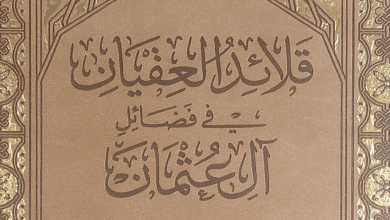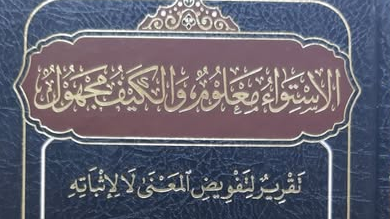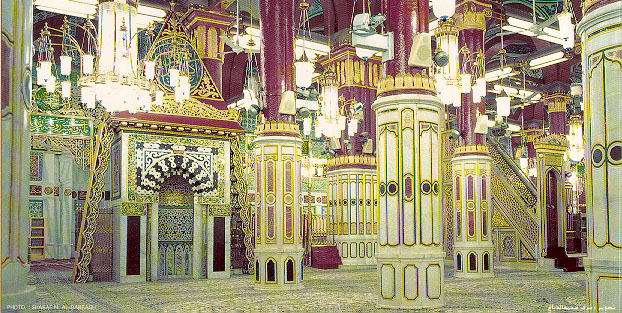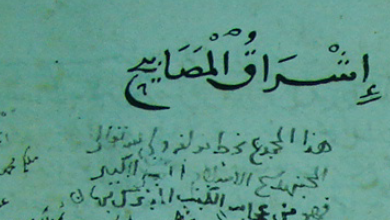Imam Abu Bakr al-Ṭarṭūshī al-Mālikī (d. 520 AH), the Ḥashwiyya and the issue of Istiwā’
Imam Abu Bakr al-Ṭarṭūshī al-Mālikī (d. 520 AH) mentioned the following discourse with regard to an individual who he regarded as holding invalid beliefs:
كنت يوما بالأرض المقدسة
وكان يغشى مجلسنا رجل من حفاظ القرآن، وكان مشاركا في حفظ المسائل، وشيئا من الحديث، مع فضل بيان، إلا أنه كان ينتمي إلى مذهب الحشوية، ويرمي علماء الدين عن قوس العداوة.
I was one day in the Holy Land and our gathering was attended by a man from among the memorizers of the Qur’an, who participated in memorizing issues and some hadith, with excellence in expression, except that he belonged to the school of the anthropomorphists [Ḥashwiyya], and he would shoot at religious scholars from the bow of enmity.
فسألني يوما عن بعض هذه العقائد، إلى أن انجر الكلام إلى الاستواء، فإذا هو يعتقد فيه اعتقادا خبيثاً، مجانبًا للصواب.
One day he asked me about some of these beliefs, until the discussion was drawn to istiwā’ (Allah’s establishment on the Throne), and behold he held regarding it a malicious belief, diverging from correctness.
فقلت له: يا هذا، أتؤمن بأن العرش مخلوق؟
قال: بلى، ورب العرش
I said to him: “O you, do you believe that the Throne (Arsh) is created?”
He said: “Yes, by the Lord of the Throne.”
قلت له: فإذا كان الله تعالى قبل خلق العرش ولا مستقرا على مكان علمت بهذا أنه لا يفتقر إلى جهة ومكان … لأنه لا يقبل التغير عند الموحدين، وإلا
فأخبرني أين كان قبل خلق العرش وسائر المخلوقات؟
I said to him: “So if Allah the Exalted existed before creating the Throne and was not established in any place, you know by this that He does not need direction (jiha) or place (makan)… because He does not accept change according to the monotheists (Muwahiddin). Otherwise, tell me where was He before creating the Throne and the rest of creation?”
فقال لي : أقول: إنه كان في السحاب، ورفع رأسه نحو السماء يشير إلى السحاب.
He said to me: “I say: He was in the clouds,” and he raised his head toward the sky pointing to the clouds.
فتأملوا – رحمكم الله – عناد هذا الرجل، وسوء هذا المزاج، وفساد هذا الاعتقاد، وعورة هذا الكلام، وما فيه من الخزي والعار، مع مناقضة آخره لأوله (۱).
Consider – may Allah have mercy on you – the obstinacy of this man, and the evil of this temperament, and the corruption of this belief, and the defectiveness of this speech, and what it contains of disgrace and shame, along with its end contradicting its beginning(1).
Footnote:
(1) الأسرار والعبر: (١) ق ٨٥ / ب).
(1) Al-Asrār wa al-‘Ibar: (1) f. 85/b).
– المصدر: تقديم الأستاذ الدكتور عبد الله التوراتي لكتاب شرح عقيدة الرسالة للإمام الخفاف الإشبيلي (ص: (76) دار نقطة.
– Source: Introduction by Professor Dr. ‘Abdullāh al-Tawrātī to the book Sharḥ ‘Aqīdat al-Risāla by Imam al-Khaffāf al-Ishbīlī (p. 76) Dār Nuqṭa.






